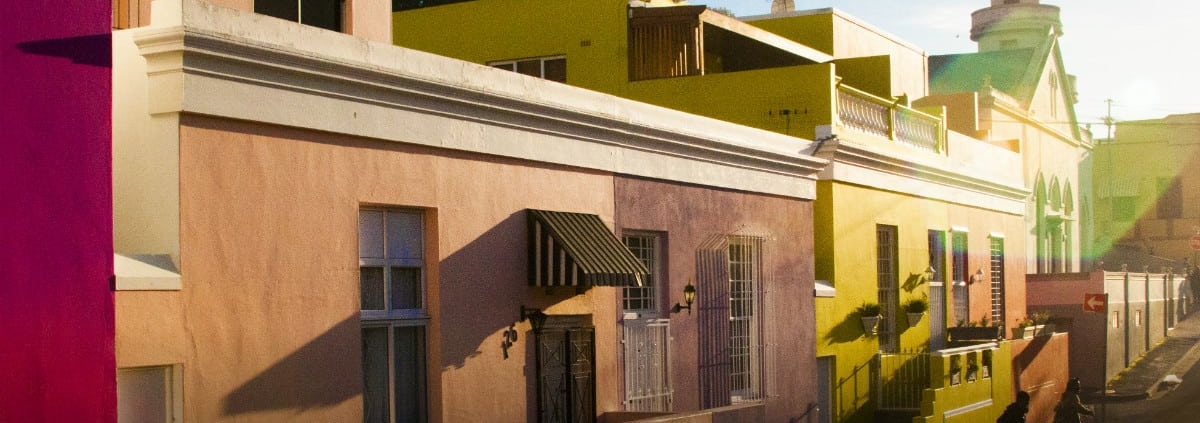Letter To A Cape Townian Muslim, by Shaykh Riad Saloojee
Shaykh Riad Saloojee looks back at Cape Town. Triggered by the live stream dhikr from Awwal Masjid, he reminisces on the sounds and sights, the daily happenings and grand occasions, and penned this lovely letter of farewell to the city he loves and had to leave in haste.
Assalāmu‘alaykum wa raḥmatullāhi wa barakātu,
I am writing this letter to you. But it’s also for me.
I left Cape Town for Canada in haste because of illness. I didn’t have time for a proper goodbye. It was a hard and fast break from the past. There was no time to reflect or reminisce or recollect.
A month has passed. My attention was devoted to convalescing. But even as my physical strength was returning, alḥamduliLlāh, I felt an inexplicable and barren sadness.
I first attributed this feeling to the frigid winter, grey-clouded skies and cabin-fever. I mentioned it to my wife. She told me to listen to the Awwal Masjid dhikr on MixLR.
And when I finally did yesterday, every dear memory of my 11-year life in Cape Town revived in me – and my frozen heart shattered into a million tears.
I’ve never been one to feel homesick. Is home really a physical geography? Other countries, too, neighbour on sea and mountains. How important is culture and custom in itself? Some prize difference even as others hold fast to the familiar. Geography, culture, custom are all valued only for the meanings woven into them by the fabric of our lives.
When the dhikr played, there was no memory of a Point where you could see an endless ocean South, East and West; or a mountain sculpted perfectly into a table (but only when you came at it from its good side); or daily weather so coquettish that it forces you to pack for four seasons; or waiting for fresh koeksisters on Sunday mornings with an aunty in curlers, a fireman and a policeman; or the shukrans of cashiers that are clearly not Muslim.
When the dhikr played, I remembered the adhān you could hear every time salāh came in, no matter where you were; I remembered the Jumu‘ah Mubārak messages to remind you that this was not any day, but the ‘Eīd of the week – where men and boys attended in angel-white thawbs, women in Ka‘bah-black abayas; I remembered how everyone wore a fez in the masjid; I remembered the congregants that raised their voices in Divine remembrance after salāh with a formula that, though the same, was always intoned with genuine emotion; I remembered people lingering in dhikr and du‘ā’ long after the mosque emptied; I remembered the familiar faces of elderly botas making the mosque their home during their twilight years; I remembered the takbīrs of ‘Eīd; I remembered people who took the Mawlid more seriously than life itself; I remembered my teachers who worked side jobs to make ends meet so that they could continue to teach; I remembered mapping out routes to visit the wondrous, resting places of the Awliyā’ and how some of those places must be earthly-pictorials of Paradise itself; I remembered the Burdah and how those who came, came with love, and how I wished to be among them; I remembered a teacher of mine who kept teaching at the height of a debilitating illness, day after day, night after night. And other memories, so poignant, so moving, that I only have strength to bring them to heart in fragments.
On the Day when we are called to account for our histories, it is only the space-time of His remembrance that will matter: those times, places and spaces where we remembered Allah, celebrated Him, loved Him, congregated and departed because of Him. What else is more worthy of being deposited in the vaults of our commemoration? Or of being the precious, shared capital of our social experience?
And this – the customs, cultures, times, places and spaces – are simply inanimate forms given life only through the hearts that inhabit them – hearts that love Allāh, love His Messenger (ṣallalāho ‘alayhi wa sallam), revere the symbols of His dīn. Hearts that illuminate you, remind you, provide you true solace in the winter of your life, and give you the strength to keep walking to Him, and never stop, come what may. What is more valuable in all our histories? More worthy of mourning for its loss?
It is from His Divine Beauty that the true beauty of Cape Town lies in His remembrances and the reverence for His symbols, at a time when one of our greatest crimes lie in a collective religious life of academic, political or social pursuit conceitedly cultured with the profanity of our heedlessness.
The Messenger (ṣallalāho ‘alayhi wa sallam) told us that the one who does not thank people does not thank Allāh. To melt this tundra in me, I have to say to you – teacher, colleague, fellow student, friend – may Allah reward you during these 11 years for the invaluable company of your heart’s remembrances. May He increase you in His remembrance and the lifelong pursuit to beautify your character.
“Play the Awwal dhikr in your background,” my wife said.
Yā Laṭīf, may it be, and never cease, always and forever. Āmīn, Thumma Āmīn.
